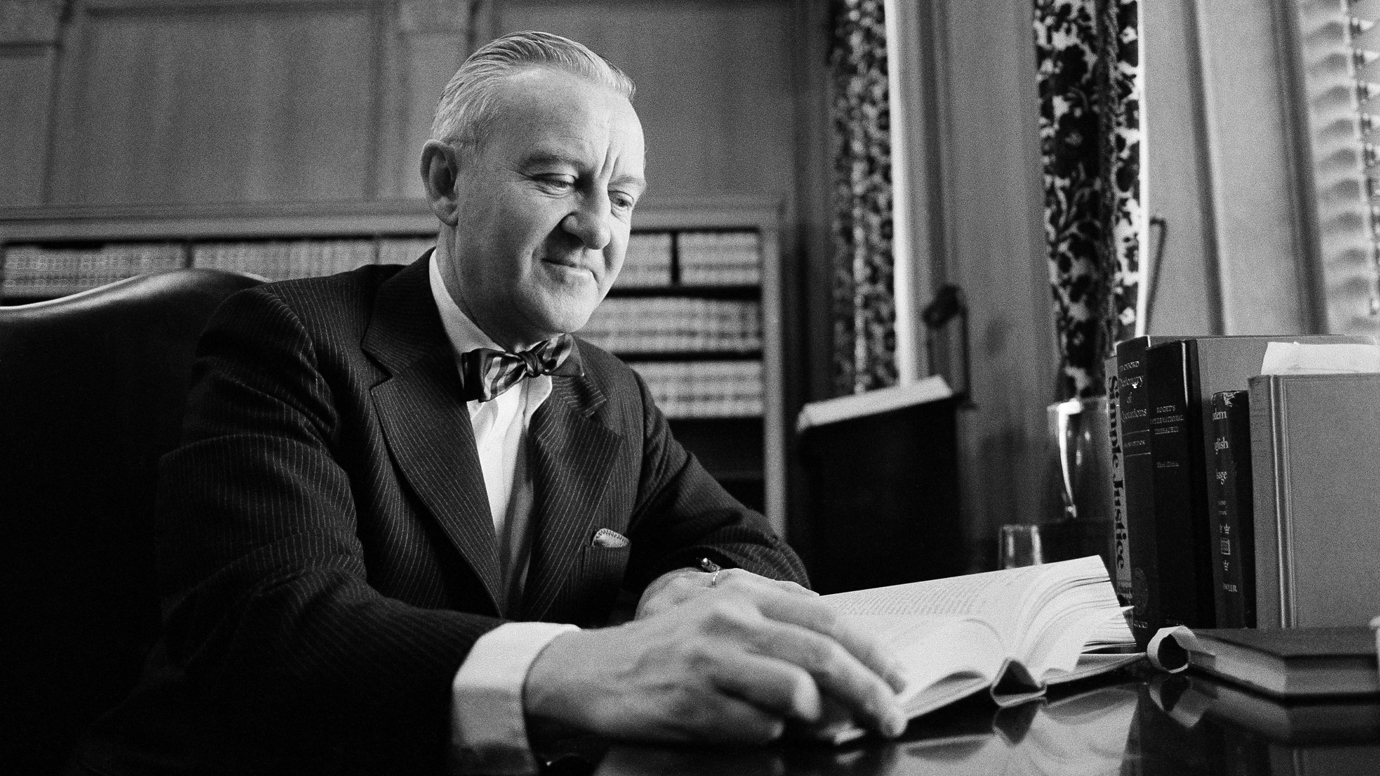John Paul Stevens, Supreme Court justice and UChicago alum, 1920-2019
Stevens explained his reversal by referencing the death of Troy Davis, executed in 2011 for the killing of a police officer two decades earlier. Davis always maintained his innocence, and civil rights groups had argued for the commutation of his sentence, citing recantations of witness testimonies.
The execution of Davis, Stevens said, “provides an example of one reason why the death penalty, as a matter of policy, is unwise if there is even a minimum of doubt.”
He announced his retirement from the Supreme Court on April 9, 2010. His vacancy was filled four months later by Elena Kagan, a former professor at the University of Chicago Law School.
How poetry prepared Stevens to study law
While a University of Chicago student, Stevens studied poetry with novelist Norman Maclean, PhD’40, the renowned author of A River Runs Through It and other works. That work prepared him for his legal career, Stevens said in 2002, when he received an Alumni Medal from the University of Chicago Alumni Association.
“He taught me to read every word of a poem,” he recalled in an address at Rockefeller Memorial Chapel. “The study of English literature, especially lyric poetry, is the best preparation for the law… That training helped me later, when trying to decipher law statutes.”
Stevens had considered studying Shakespeare in graduate school, but another professor prompted him to instead take a correspondence course in cryptography offered by the Navy. According to a 2002 article in the University of Chicago Magazine, Stevens was commissioned as a Naval officer on Dec. 6, 1941, a day before the bombing of Pearl Harbor. Stevens eventually earned a Bronze Star for his work as a codebreaker during World War II.
He then attended Northwestern University Law School, eventually clerking for Supreme Court Justice Wiley Rutledge and becoming an expert in antitrust law. In addition to his private practice, he lectured at the University of Chicago Law School during the 1954-55 school year and in the summer of 1958.
Stevens is survived by his children, Elizabeth Jane Sesemann and Susan Roberta Mullen; nine grandchildren; and 13 great-grandchildren. He was preceded in death by his first wife, Elizabeth Jane; his second wife, Maryan Mulholland; his son, John Joseph; and his daughter, Kathryn.








Gloss